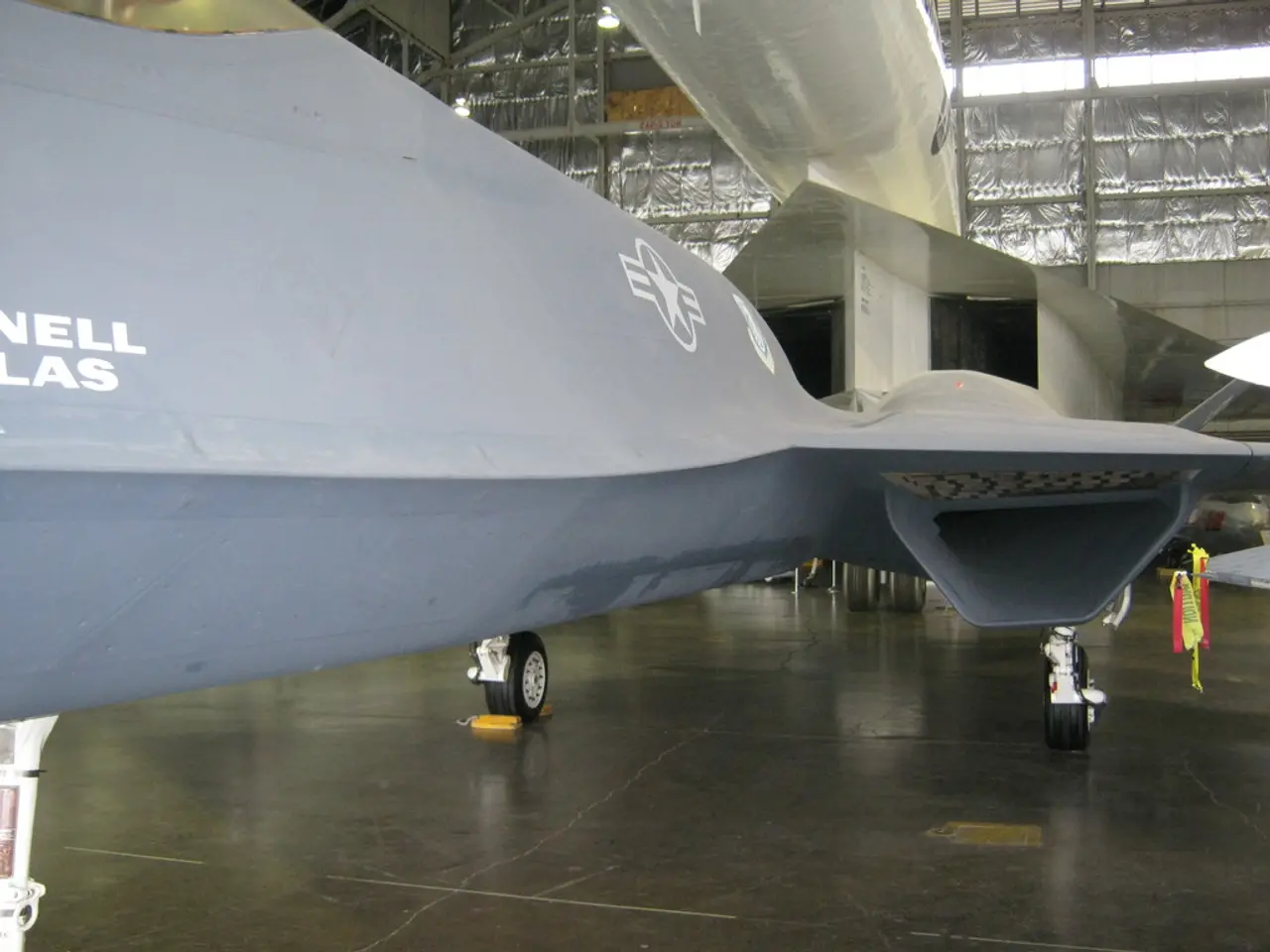Predicting Boeing's Stock Trajectory: Will the Aerospace Industry Titan Rebound or Continue Its Descend?
Boeing's Road to Recovery
Boeing, the aerospace giant, is making strides towards recovery, with a focus on regaining investor confidence and securing new contracts with the U.S. government and international defense clients to provide financial stability.
TD Cowen analyst Gautam Khanna has raised his price target for Boeing stock to $200, citing the company's strong order backlog of 5,400 planes valued at $428 billion. The company's financial health is further bolstered by a 35% year-over-year revenue increase in Q2 2025 to $22.7 billion and a significant surge in commercial aircraft deliveries, marking the highest Q2 delivery figure since 2018.
CEO Kelly Ortberg has declared 2025 as a turnaround year, with a disciplined production ramp-up plan for the 737 Max program. The company aims to increase production to up to 47 aircraft per month by year-end, with potential to exceed 60 units monthly using an additional production line. This addresses prior production instability and quality concerns that have now improved markedly.
Analysts forecast Boeing moving from expected losses in 2025 to positive earnings by 2029, implying significant upside potential in Boeing stock valuation over the next several years. However, challenges remain, including negative margins in the commercial aircraft unit, certification delays, regulatory hurdles, labor relations, and the need to sustain production improvements.
Investor sentiment has improved, with Boeing shares up about 25-27% year-to-date in 2025, outperforming the S&P 500. Economic conditions such as interest rates, inflation, and overall health of the airline industry will impact Boeing's financial outlook.
Boeing has faced increasing scrutiny over quality control, leading to multiple aircraft delivery delays. The company must address ongoing parts shortages and supplier constraints to prevent further delays. The long-term demand for commercial aircraft remains strong, but Boeing must demonstrate improved efficiency and financial discipline to justify a sustained stock price recovery.
Investors will also analyze management strategies to evaluate whether Boeing can effectively address operational challenges and restore investor trust. Boeing endured a seven-week machinist strike that ended in November 2024, resulting in a 38% pay raise and a $12,000 ratification bonus.
The U.S. government's Air Force One aircraft program is delayed until 2029 or later. Airbus continues to gain market share, and new entrants may disrupt the traditional duopoly in commercial aviation. Economic conditions, quality control, and management strategies will be crucial factors in Boeing's long-term success.
Upcoming earnings reports will be closely watched by investors to gauge Boeing's progress and potential for recovery. The company’s path appears set for gradual recovery and return to profitability in the medium term, with analysts projecting a substantial valuation rise by 2029.
- Boeing's financial health is further enhanced by increased revenue from logistics and supply chain management in African ports, aiding in the delivery of imported aviation parts.
- Boeing's management team is working closely with aviation industry partners to streamline logistics and ensure a steady supply chain for future deliveries, bolstering investor confidence.
- The aviation industry's market recovery is influenced not only by Boeing's progress but also by global aviation finance policies, particularly those impacting aerospace manufacturing and delivery.
- To secure long-term success, Boeing must continue to improve aviation quality control practices, ensuring efficient aircraft deliveries and mitigating potential financial losses due to delay-related issues.
- Boeing's strategic partnerships with key logistics providers can help address ongoing parts shortages and supplier constraints, maintaining timely deliveries and supporting the recovery of the company's stock.
- Long-term, Boeing's ability to improve operational efficiency, demonstrate financial discipline, and effectively address quality control challenges will be critical factors in justifying a sustained stock price recovery, as well as its competitiveness in the changing commercial aviation market.








